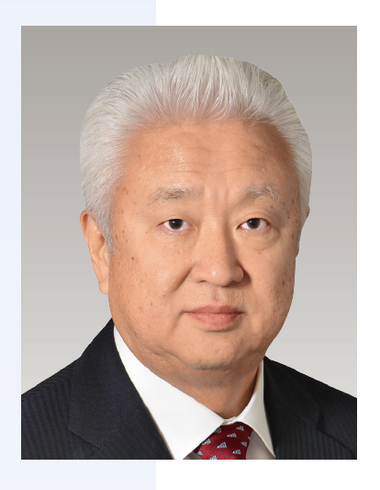Foreword: Our Contribution to the Society of Sustainable Energy
*Executive Vice Chairman & Group COO, HORIBA, Ltd.
For many years, HORIBA has contributed to the development of advanced engines and powertrain systems by supplying unique automotive metrology systems that have contributed to reducing human impact on the environment. In July 2017, HORIBA merged with MIRA Ltd., a British organization dedicated to researching and testing vehicles, thereby expanding the contributions of developing technologies for energy efficiency, as well as the safety and security of automotive vehicles.
The automotive industry is currently facing the biggest revolution of the past 100 years. The unprecedented convenience of self-driving cars pushes the boundaries of our technologies, with demands for safety and security increasing the need for massive high-speed communications networks. Researchers are currently working on the next generation of transportation, “CAV” or Connected Autonomous Vehicles. The technical elements required for control, communication, and cyber security are an integral part of these innovations. HORIBA has begun to integrate their established conventional metrology with MIRA’s experience and technologies to expedite such innovations. As part of this challenge, HORIBA is establishing new facilities in MIRA, including a city-style test course for self-driving, test systems for a self-parking controller, and a test course for high-speed critical behavior. HORIBA has also defined a comprehensive series of technologies for cyber security and functional safety “VRES” (Vehicle Resilience), while supporting customer’s system development.
Another element of the automotive revolution is vehicle electrification. This references not only the power conversion from internal combustion engines to an electric motor, but includes innovated solutions for more effective, larger capacity power generation, and precise control of power input/output applicable to various types of electric vehicles. The market includes simple electric vehicles (EV) that are powered only battery only, hybrid EV (with the hybridization of internal combustion engine and battery), and integrated EV (such as the fuel cell vehicle equipped with fuel cell as power generator, battery, and electric motors). Each of these newly developed types of vehicles will be equipped with more complicated powertrain systems suitable for innovated electrification. The subsystems of power generators such as motors, batteries, power generators, as well as the mechanical systems, electric circuits, and the software that runs each of these systems needs to be consolidated in a single vehicle. Accordingly, design parameters will increase rapidly, seriously increasing the labor necessary for the design of electrified vehicles.
In 2018, HORIBA merged with FuelCon AG, a German provider of testing systems of fuel cells and lithium-ion batteries in order to participate in the trend of vehicle electrification. In order to integrate FuelCon technology, HORIBA will allocate space at in the main Biwako-E-Harbor factory with total testing and evaluation systems for components such as fuel cells or batteries, to systems and vehicles. HORIBA will continue to integrate its energy and mobility business, supporting the establishment of Horiba Institute for Mobility and Connectivity (HIMAC) at the University of California, Irvine (U.S.A.) for the dedicated research of creative solutions.
The Masao Horiba Award celebrates its sixteenth anniversary this year. This award has consistently supported basic research for solutions of various social questions. This year’s theme is "Advanced analytical and measurement technologies for efficient control system used to maximize the performance of electric power and batteries usage." It is our hope and expectation that the winners of the Masao Horiba award will become major contributors to these endeavors.
The theme of the award is the special feature of this issue of Readout.
* This content is based on our investigation at this publish unless otherwise stated.
